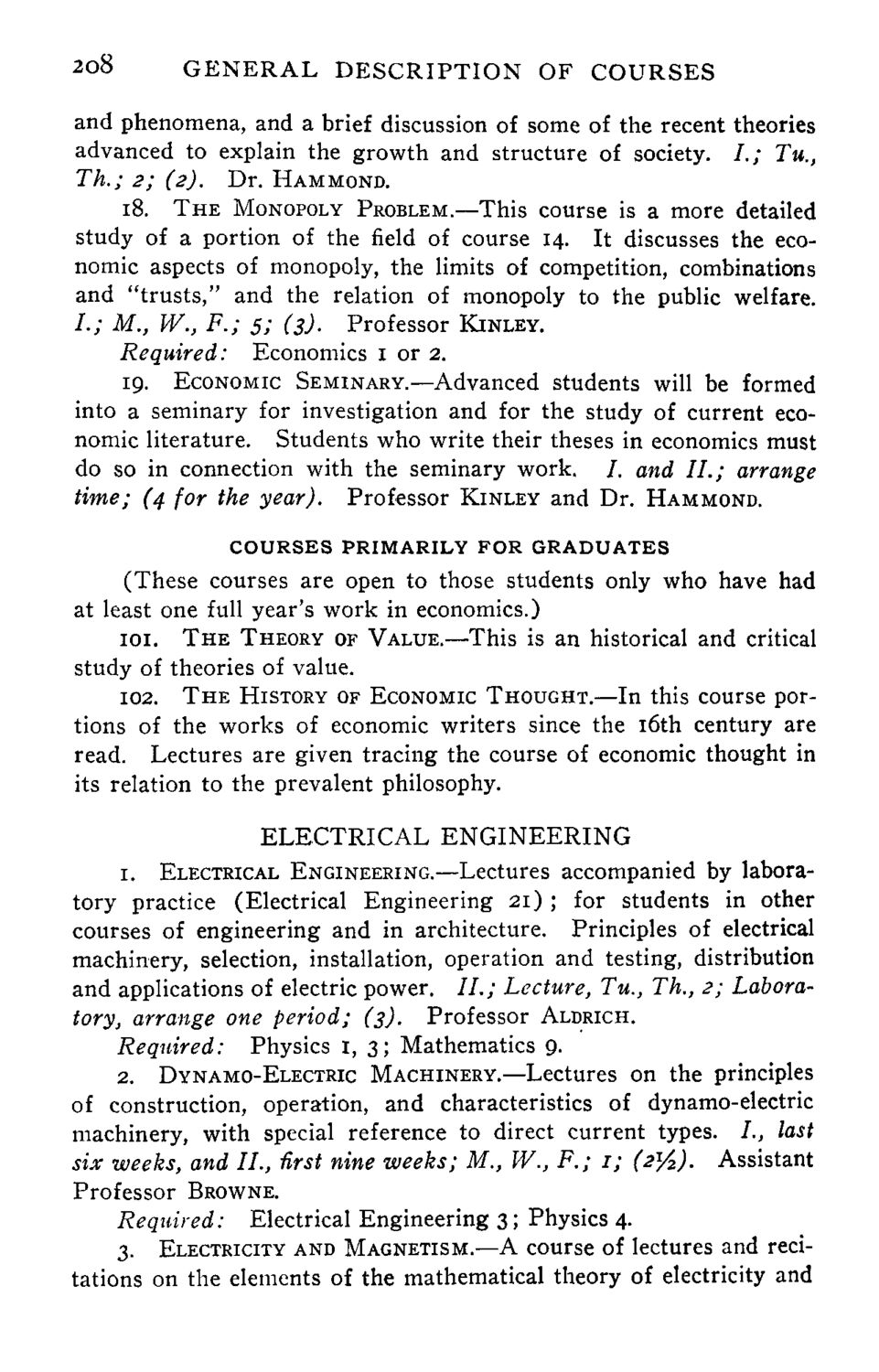Caption: Course Catalog - 1899-1900
This is a reduced-resolution page image for fast online browsing.

EXTRACTED TEXT FROM PAGE:
2O8 G E N E R A L DESCRIPTION OF COURSES and phenomena, and a brief discussion of some of the recent theories advanced to explain the growth and structure of society. / . ; Tu., Th.; 2; (2). Dr. HAMMOND. 18. T H E MONOPOLY PROBLEM.—This course is a more detailed study of a portion of the field of course 14. It discusses the economic aspects of monopoly, the limits of competition, combinations and "trusts," and the relation of monopoly to the public welfare. / . ; M., W., F.; 5; (3). Professor KINLEY. Required: Economics 1 or 2. 19. ECONOMIC SEMINARY.—Advanced students will be formed into a seminary for investigation and for the study of current economic literature. Students who write their theses in economics must do so in connection with the seminary work. / . and II.; arrange time; (4 for the year). Professor KINLEY and Dr. HAMMOND. COURSES PRIMARILY FOR GRADUATES (These courses are open to those students only who have had at least one full year's work in economics.) 101. 102. T H E THEORY OF VALUE.—This is an historical and critical T H E HISTORY OF ECONOMIC THOUGHT.—In this course por- study of theories of value. tions of the works of economic writers since the 16th century are read. Lectures are given tracing the course of economic thought in its relation to the prevalent philosophy. ELECTRICAL ENGINEERING 1. ELECTRICAL ENGINEERING.—Lectures accompanied by labora- tory practice (Electrical Engineering 21) ; for students in other courses of engineering and in architecture. Principles of electrical machinery, selection, installation, operation and testing, distribution and applications of electric power. / / . ; Lecture, Tu., Th., 2; Laboratory, arrange one period; (3). Professor ALDRICH. Required: Physics I, 3 ; Mathematics 9. 2. DYNAMO-ELECTRIC MACHINERY.—Lectures on the principles of construction, operation, and characteristics of dynamo-electric machinery, with special reference to direct current types. / . , last six weeks, and II., first nine weeks; M., IV., F.; 1; (2^/2). Assistant Professor BROWNE. Required: 3. Electrical Engineering 3 ; Physics 4. ELECTRICITY AND MAGNETISM.—A course of lectures and reci- tations on the elements of the mathematical theory of electricity and
|